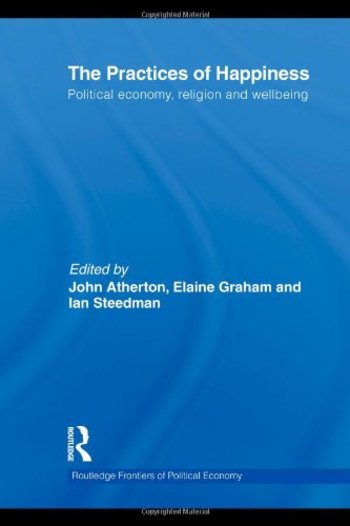- 丛书名 : Routledge Frontiers of Political Economy
- 中图分类号: F0
- 语种: ENG
- 出版信息: TaylorFrancis 2010 297页
- EISBN: 9780415550970
- PISBN-P: 9780415550970
- 原文访问地址:
KG评星
知识图谱评星,是一种基于用户使用的评价体系,综合图书的评论数量、引文数量、Amazon评分以及图谱网络中节点的PageRank值(即考虑相邻节点数量和重要性)等多种因素计算而得出的评价数值。星级越高,推荐值越高。CAT核心级
核心学术资源(CAR)项目作为教图公司推出的一项知识型服务,旨在打造一套科学、有效的图书评价体系,并协助用户制定相应的馆藏建设方案。CAR项目调查和分析12所世界一流大学的藏书数据,以收藏学校的数量确定书目的核心级,核心级越高,代表书目的馆藏价值越高。选取核心级在三级以上,即三校以上共藏的图书作为核心书目(CAT)。There is growing evidence that rising levels of prosperity in Western economies since 1945 have not been matched by greater incidences of reported well-being and happiness. Indeed, material affluence is often accompanied instead by greater social and individual distress. A growing literature within the humanities and social sciences is increasingly concerned to chart not only the underlying trends in recorded levels of happiness, but to consider what factors, if any, contribute to positive and sustainable experiences of well-being and quality of life. Increasingly, such research is focusing on the importance of values and beliefs in human satisfaction or quality of life; but the specific contribution of religion to these trends is relatively under-examined. This unique collection of essays seeks to rectify that omission, by identifying the nature and role of the religious contribution to wellbeing. A unique collection of nineteen leading scholars from the field of economics, psychology, public theology and social policy have been brought together in this volume to explore the religious contribution to the debate about happiness and well-being. These essays explore the religious dimensions to a number of key features of well-being, including marriage, crime and rehabilitation, work, inequality, mental health, environment, participation, institutional theory, business and trade. They engage particularly closely with current trends in economics in identifying alternative models of economic growth which focus on its qualitative as well as quantitative dimensions. This distinctive volume brings to public notice the nature and role of religion contribution to wellbeing, including new ways of measurement and evaluation. As such, it represents a valuable and unprecedented resource for the development of a broad-based religious contribution to the field. It will be of particular relevance for those who are concerned about the continuing debate about personal and societal well-being, as well as those who are interested in the continuing significance of religion for the future of public policy. Introductory essay: developing an overview as context and future John Atherton Part 1: Political Economy 1. Economic theory and happiness Ian Steedman 2. Happiness, welfare and capabilities Carl-Henric Grenholm 3. Happiness through thrift: The contribution of business to human wellbeing Peter Heslam 4. Happiness, work and Christian theology Peter Sedgwick 5. Happiness isn't working, but it should be Malcolm Brown 6. Challenging inequality in a post-scarcity era: Christian contributions to egalitarian trends John Atherton 7. Fair trade and human wellbeing Michael Northcott Part 2: Contributions to Other Social Sciences 8. Religion and happiness: perspectives from the psychology of religion, positive psychology and empirical theology Leslie Francis 9. Ethnographic insights into happiness Jonathan Miles-Watson 10. Institutions, organisations and wellbeing Tony Berry 11. Religion, family form and the question of happiness Adrian Thatcher 12. Mental health, spirituality and religion Peter Gilbert 13. The ne in the morningknock: exploring the connections between faith, participation and wellbeing Christopher Baker 14. Crime, wellbeing and society: Reflections on social, 'anti-social' and 'restorative' capital Christopher Jones 15. Supporting offenders: A faith based initiative Charlotte Lorimer Part 3: Reflections on Foundations 16. Human happiness as a common good: clarifying the issues Patrick Riordan 17. Being well in creation John Rodwell 18.The irtuous circle Religion and the practices of happiness Elaine Graham 19 Well being or resilience? Blurred encounters between theory and practice John Reader







 京公网安备 11010602104826号
京公网安备 11010602104826号
